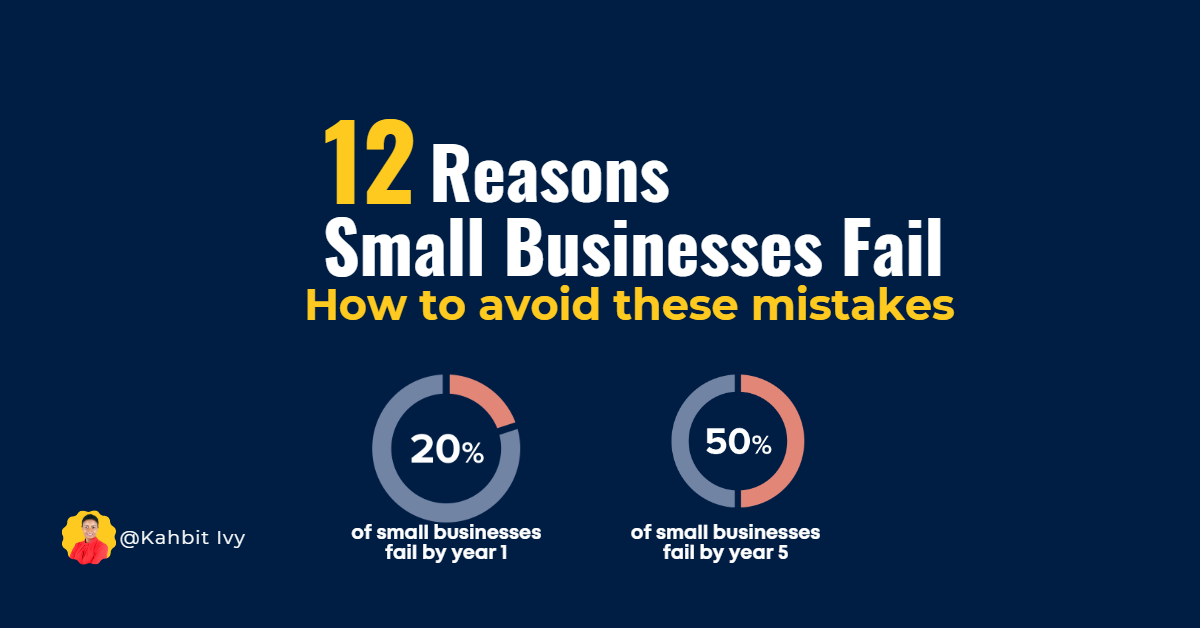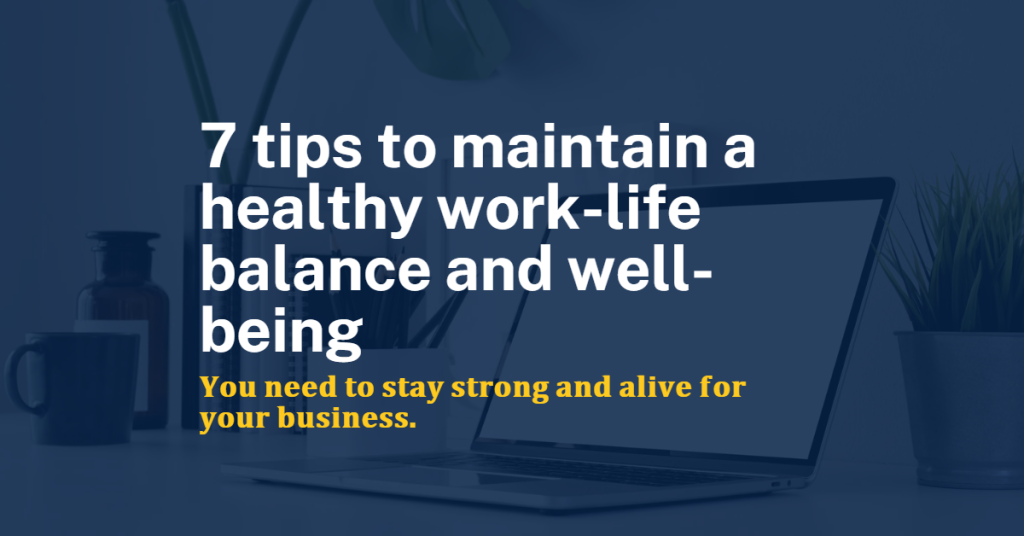Starting a business is a dream of millions of people, but the facts can really be harsh. 20% of small businesses fail by year 1 and 50% of businesses fail by year 5.
Small businesses face numerous challenges, and unfortunately, many of them fail within their first few years of operation. However, entrepreneurs can increase their chances of success by understanding the common reasons for small business failures and taking steps to avoid these mistakes.
#1. Not having enough capital to sustain growth right after launch.
I won’t explain this since we already know.
#2. You romanticize your business.
Research has it that most entrepreneurs use the word “passion” when talking about why they get started with what they do. If we want to define the word passion on a simpler scope, it could mean something so dear to oneself, afraid to let anyone or something come in between. “Many entrepreneurs talk of finding passion so they never get to work a single day in their life”.
I bet to tell a number of people will misinterpret this to think it’s that rosy to build a business and will not take the necessary steps.
It’s no doubt your passion can launch a business. But the mistake most small businesses make is that they treat it like a passion once it is launched. Successful businesses have to be governed and run by facts, metrics, data, finances, processes and rules not based on personal emotions.
#3. Not having a business plan
Poor planning will lead to failure. This is not complicated as you might think. You need to have a clear roadmap of the direction you would take to reach where you want to go. Create a detailed business plan that includes your objectives, target market, marketing strategies, financial projections, and contingency plans (some sort of back up or should something unforeseen happen). Regularly review and update your plan as your business evolves.
- It will help you figure out if your idea can become a sustainable business.
- You will make big spending decisions with confidence.
- It truly minimises risk and help you get funding.
- It will help you grow faster.
#4. Not understanding customers’ problems
Successful businesses need to satisfy a need, a need that people will actually get fulfilled. Yes, you might have a product that you love, but if that product or service does not fix a particular problem that business will fail. Not only should it be able to fix a problem, on the other hand you should be able to clearly articulate what that solution is. Communicate the problems and solution in a motivating way so your target customer will take action.
#5. You don’t analyze the competition
You can’t position yourself correctly if you don’t know what else exists as a solution in the minds of your ideal customers. The knowledge you gain from analyzing your competition helps you develop a differentiation strategy. It gives you insights into the gaps in the market so you can delight your customers more.
The goal of positioning is to have a specific place in your customer’s mind. You can’t do that if you look, sound, and have a similar unique selling point (USP) as every other competitor.
#6. You think having a good product is enough
Having a good product is not enough to succeed in business, you need other factors
- Visibility: Craft a brand awareness of your existing
- Authority: Establish reasons to believe that you can deliver what you say you can provide.
- Credibility: Showcase your wins; show proofs, testimonials, and case studies, what you can and how you have done it for other people.
- Marketing strategy: Come up with a game plan of reaching your customers and converting them into repeat clients through promotion and attraction, ads, content marketing, and word of mouth.
- Poor customer service : Pay attention to customers’ experience throughout all aspects of the journey; prepurchase, between and after-sales services. Engage with your customers, listen to their feedback, and address their concerns promptly. Cultivate loyalty through personalized experiences and rewards programs.
#7. Failing to adapt
Time changes, what worked yesterday might not work today. Stay attuned to what is happening inside and outside your business. Remember culture doesn’t stand still, neither do marketing strategies and technology. Stay in the know and update accordingly.
#8. Overexpansion/Growing too quickly
While growth is desirable, expanding too rapidly without proper planning and resources can strain your business. Ensure you have a solid foundation and sufficient resources to support growth. Gradually scale your operations, monitor key performance indicators (KPI), and make strategic decisions based on data.
#9. Underestimating word of mouth and customer experience
Every customer interaction creates geometric growth possibilities for your company. The internet has created platforms where anyone can publicly call out or shame a company for bad products. One fantastic customer experience has the potential for a brand that blows up and one bad experience can blow you up in a really bad way.
#10. The speed of customer service is more important than ever
In the age of smartphones where everything is at our fingertips, speed service has become one of the most important metrics in customer support. The general public doesn’t like to wait for anything, much less for customer service.
Also, the human touch is a huge differentiator for customers. A business/company with a human face is the future. Gone are those days when people hide behind logos., show up and build trust with your audience. Small businesses can truly accentuate how they interact with customers.
#11. Not having a marketing plan
It is unfortunate how many start-ups think they will build or produce then ‘customers will come’. A striving small business needs a regular stream of sales and customers – you need a marketing plan to achieve that. Having a great product or service is only step one.
- you have to strategically plan how you are going to become visible
- where
- when
- how frequently are you gonna show up
- how are you going to capture attention in the market?
- how will you communicate your value proposition?
- how are you going to entice people to take action?
- then transport them to where you actually deliver the thing, whether that is a digital portal like a website, e-commerce store, or a physical store outlet.
#12. Thinking you know it all
Having confidence is necessary for starting and running a business, but owners who think they can do it all or know it all fail at a much higher rate. Those who “know what they don’t know” hire or retain experts in things like marketing and consumer research, finance, sales, designs, and customer service are more likely to succeed.
Starting and maintaining a vibrant and successful business is one of the most rewarding experiences you can have in your working life. It gives you a sense of urgency and control over your own destiny. Being aware of these common pitfalls and proactively addressing them, staying strong and learning, and adjusting as you go can increase the chances of your small business succeeding.
Hope this article is an eye-opener for you.
Are there any of the points you will take seriously? Let me know in the comments.

